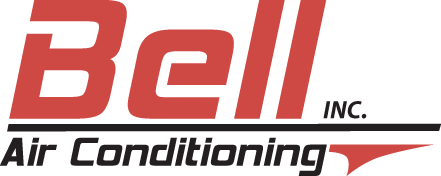
Natural gas furnaces need adequate space and airflow to heat correctly.
Your furnace can shut down if it doesn’t have enough clearance. It also makes it hard for our professionals to complete furnace repair.
Routine furnace maintenance is important to keep your equipment operating trouble-free. A routinely serviced furnace may run more efficiently, which could reduce your utility costs.
Related: How Does Furnace Maintenance Impact the Energy Efficiency of Your Home?
Maintenance often helps us notice issues before they begin. This could help lower future repair bills and potentially lengthen the life of your furnace.
So how much clearance should your furnace really have?
How Much Space Does My Furnace Need?
If you’re finishing your basement or enclosing your furnace room, you should research manufacturer directions and Temple/Belton statutes for clearance rules.
As a general rule of thumb, your furnace should be 30 inches away from furnace room walls on all sides. This permits our service professionals to comfortably work on it.
You also need to ensure the area has enough airflow and ventilation, especially if you have an older furnace with a metal flue.
Related: Furnace Service or Furnace Replacement: What to Consider
This model of furnace pulls combustion air from the nearby space. If there’s insufficient air, hazardous gas fumes and toxic carbon monoxide could back draft into your home.
If your furnace is located in a little room with a gas water heater, you may need to add extra openings. This could include a fully louvered door or vents in the walls.
You don’t need to consider airflow and ventilation as much if you have a modern, high-efficiency furnace with PVC piping. Your system uses one pipe as an exhaust vent and the other to pull in air.
Keep Hazardous Items Away from Your Furnace
Although furnace rooms function as laundry and storage space, you should keep yours free of items that could be fire hazards.
This includes:
- Clotheslines
- Cleaning or laundry products
- Gasoline, paint or paint thinner
- Rags and papers
- Wood scraps and sawdust
- Used filters
If you have a cat, place your litter box in another room. Cat urine contains ammonia, which could create wear on your furnace’s heat exchanger. Plus, the furnace could spread the stinky odors throughout your home.
You should also regularly vacuum near your furnace to prevent dust from developing.
Related: Is it Time for Furnace Service or Replacement?
Request a Free Quote for Furnace Service
Whether you want furnace replacement or annual maintenance in Temple/Belton , Bell Air Conditioning Inc can expertly handle your needs. Our highly trained technicians can work on any HVAC model or brand.
Call us at 254-307-9572 or use our online scheduler to request an appointment today.
